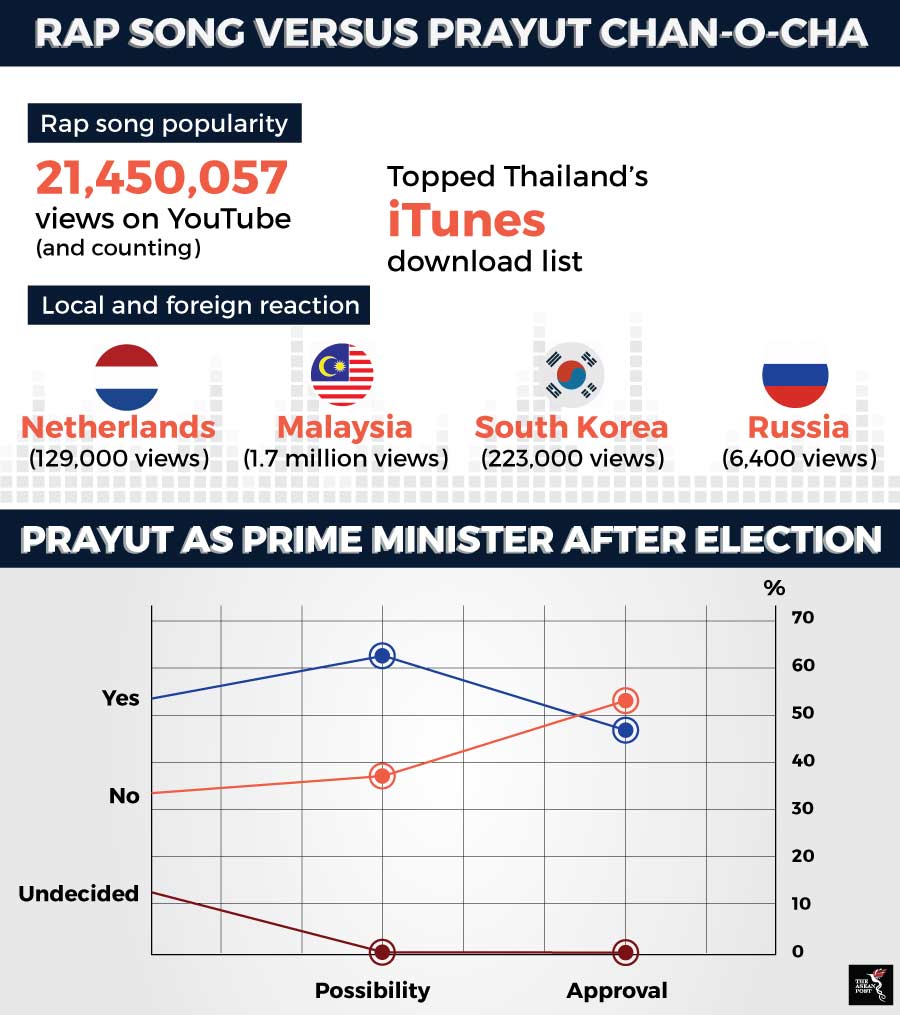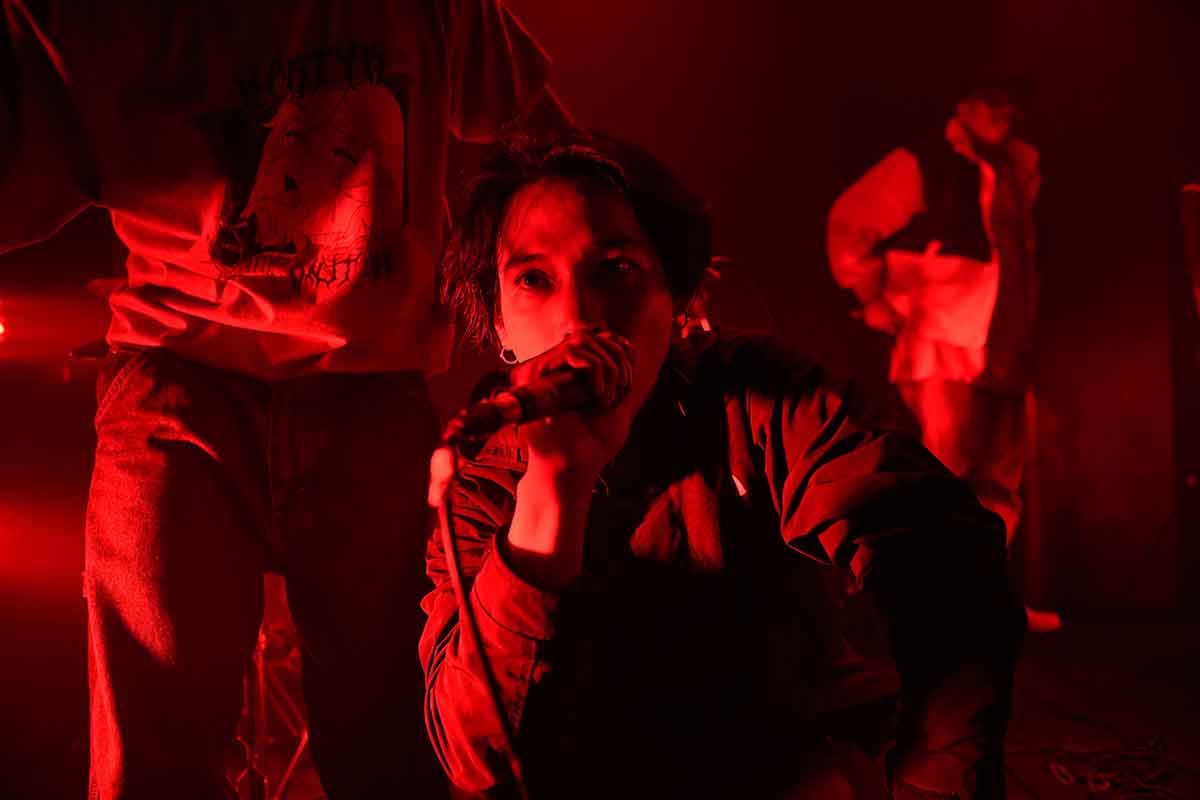A song entitled “What my country's got” (Prathet Goo Mee) by Thai rap group Rap Against Dictatorship is making waves on the internet. So far, it has managed to garner more than 23 million views on YouTube, and has topped Thailand’s iTunes download list. You can also find several reaction videos posted from people all around the world on YouTube as well.
Although the song by several local rappers is entirely in Thai and the English translation provided is not the best in the world, the message is clear. Highlighting social and political issues plaguing Thailand, most of the lyrics are aimed squarely at the ruling military junta, providing an awkward situation for the government there to handle.
Chulalongkorn University philosophy professor Soraj Hongladarom claims that the song provides a counter to the image the military government has attempted to paint for itself.
“The rap song destroys the image the military government has forced into people’s minds – that they are the heroes who return happiness to the country,” he tweeted on Friday, alluding to the pro-military song “Return Happiness to the People”, written by Prime Minister Prayut Chan-o-cha himself and airs every day on all Thai TV channels.
Thai media have also interviewed several Thai youths who concurred with the professor’s sentiment and spoke in support of the rap song – albeit anonymously.
A blessing for political parties
“What my country's got” is a blessing in disguise for political parties, especially considering the digital campaign ban placed on them by Prayut and the National Council for Peace and Order (NCPO).
There is little doubt that political parties will benefit from the traction the song has managed to garner but more than that, the song – by its sheer political message – will increase political awareness among Thais, resonating especially with the youth. Peter Stockinger, a researcher and professor from the Institut National des Langues et Civilisations Orientales, wrote on music as a medium of communication saying that it was an extremely efficient means of engaging people for all types of causes including political, social, and religious causes.
“As a researcher working in France, I necessarily have in mind the Marseillaise which has been, before becoming the official French hymn, the patriotic song of the French revolution. Let me quote also Verdi and especially his opera Nabucco as the absolute reference for the Italian Risorgimento. Think more generally on all the many different revolutionary songs that accompany political movements through recent history,” he said.
Political parties in Thailand have not missed a beat, especially the new Future Forward Party which has highlighted the youth and disenfranchised as being among its target audience.
According to its leader, Thanathorn Juangroongruangkit, the song has “unveiled” the situation in which “dictators” use soft culture like songs to make people unaware that they are being oppressed. “What Prathet Goo Mee does is to unveil that,” he said. “We are not seeing a fight of guns, but a fight of songs.”
 Source: Various sources
Source: Various sources
Checkmate? Maybe not
In a previous article, The ASEAN Post had noted all the angles that Prayut most likely thought of while delaying the election date before finally deciding on one that was most promising for the NCPO and himself. The article also noted that one of the last areas that Prayut needed to work on was increasing his own popularity.
While several measures had certainly been taken towards this end - including an attempt to paint a warmer more approachable side of himself via numerous photos with popular Japanese-pop girl group AKB48 - Prathet Goo Mee challenges those efforts and paints a completely different picture as far as Prayut’s popularity goes. Unfortunately, there is a remote possibility that this could present greater challenges to Thailand’s democracy if the song creates enough of a threat to cause further delays in the election date.
This was further intensified via a poll conducted by the National Institute for Development Administration (NIDA), which some critics have accused of being biased.
The poll, conducted between 24 to 26 October, found that when asked whether they would support Prayut for prime minister after the next general election, a slight majority - 51.7 percent - said "no", reasoning that his past performance has not been satisfactory; 47.5 percent said "yes", believing he would a good middleman who can lead the country to peace and prosperity; and 0.7 percent were uncertain or had no comment.
Asked whether they think Prayut will return as prime minister, 63.5 percent said this is likely; 35.7 percent thought this is unlikely; and 0.7 percent were uncertain or had no comment.
Thai police, who had previously promised to press charges against the rappers under the Computer Crimes Act, have now backed down saying that there was no evidence to charge them at this stage. However, if the numbers and reactions from people all over the world are anything to go by, the damage has likely been done already.
Whether or not the song will result in greater dissent and revive democracy in the Land of Smiles is yet to be seen with proponents of democracy remaining hopeful.
Related articles:
